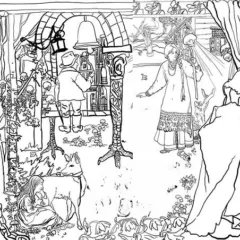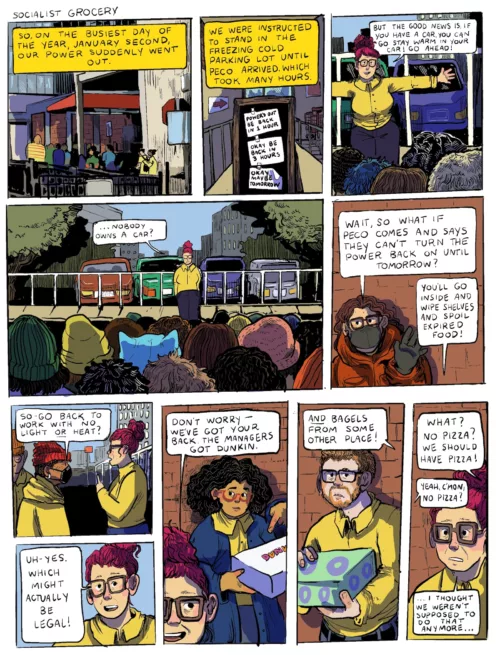Ever since its creation around 1500, Hieronymous Bosch’s “The Garden of Earthly Delights” has inspired, provoked, and perplexed viewers. Bosch’s bizarre hybrid creatures and disturbingly creative torture devices captured people’s imagination as much in the early modern era as they do today. Recently, a young woman transcribed the musical notes Bosch painted on the posterior of one of the damned souls in Hell and recorded the music on a piano, calling it “a 600-year-old butt song from Hell.”
But beyond the amusing butt song lies a medieval moral universe seemingly at odds with our contemporary world. How can we relate to this painting today? Mike Durkin and the folks of The Renegade Company offered their take on the relevance of Bosch’s work with a series of movement-based vignettes inspired by the painting and performed in a community vegetable and flower garden in South Philadelphia. Fruit, flowers, cocktails, and cats all made an appearance in this unique take on sin and damnation in a bucolic setting. Here’s my report from the performance Dave and I saw on May 8.
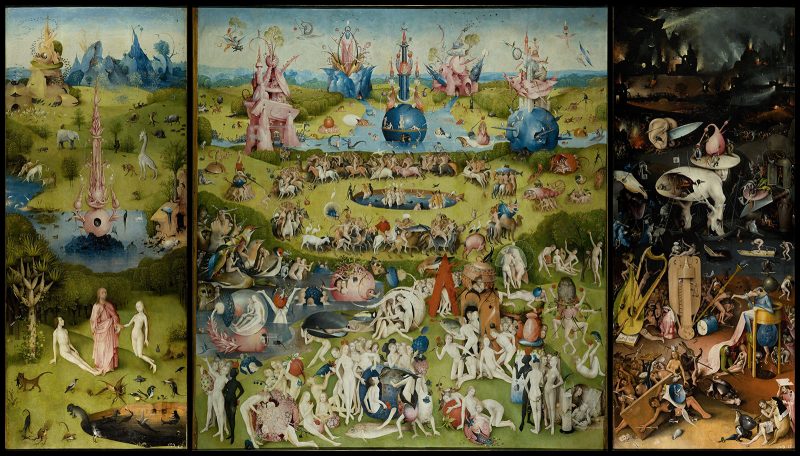
The fruits of the garden
Upon entering the community garden, we were greeted with the first of several cocktails from the craft cocktail makers of Spirit Forward, and encouraged to roam around the garden as we wished. Wandering around on a gloriously sunny and breezy Sunday evening, all the flowers were in full bloom. After the recent rains, the earth was soft and everything smelled of green growing things and Spring itself. This celebration of nature’s fertility finds obvious parallel in the imagery in the central panel of Bosch’s triptych, which depicts happily naked men and women in a garden setting, cavorting with one another–and with bizarrely oversized fruit and flowers.
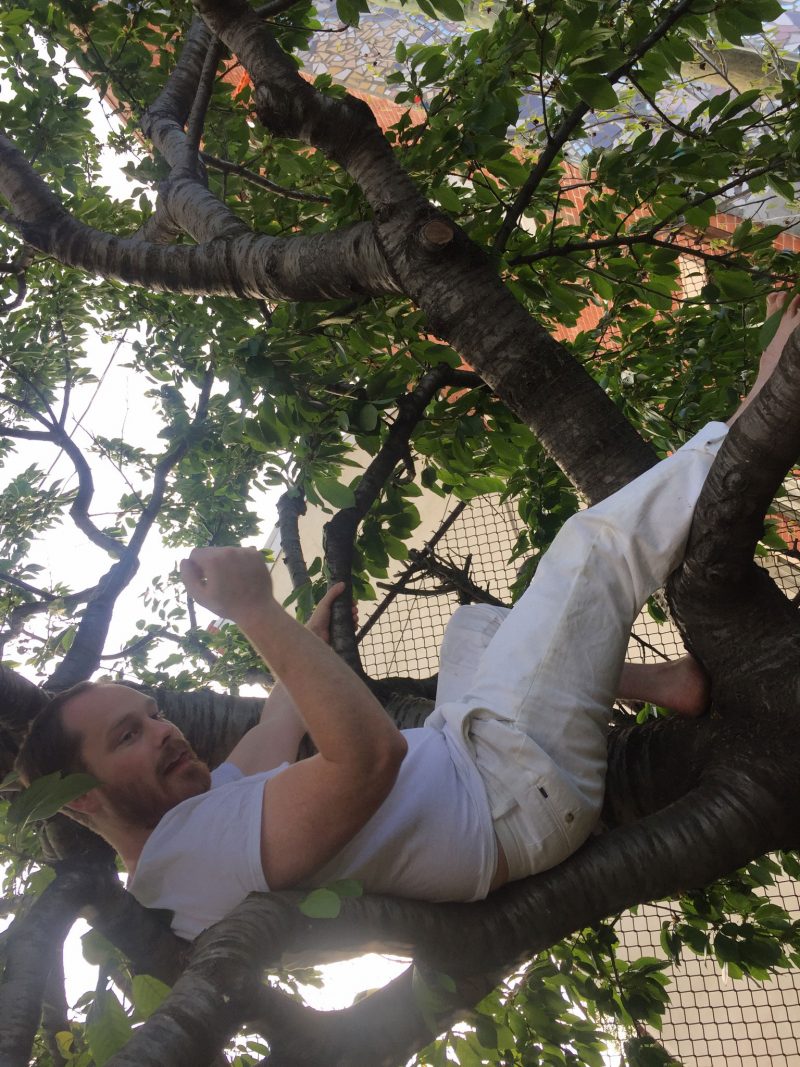
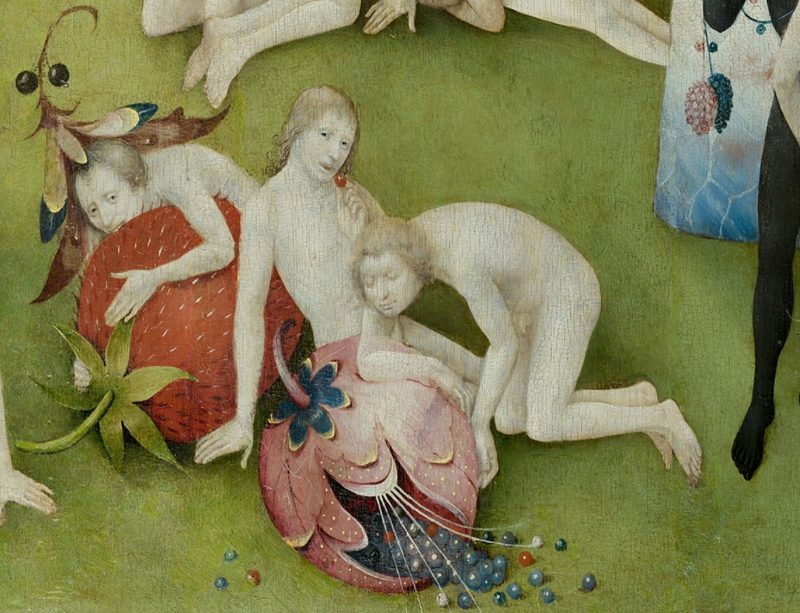
The first vignette that greeted us was a humorous take on Bosch’s giant fruit–a man dressed in a simple white t-shirt and trousers wordlessly wrestled with what I assumed to be an imaginary giant strawberry, like the one depicted in the foreground of the painting. When he finally plucked it free, he hugged the fruit lovingly, taking a big, juicy bite out of his virtual strawberry. Like Bosch’s figures, the actor looked almost drunk with pleasure, transforming eating into a sensual, sinful act.
Death and blueberries
Moving deeper into the garden, things took a slightly darker turn. A woman dressed in simple black leggings and a black shirt prompted one of us to sit down in front of her, engaging us immediately in metaphysical conversation about life, death, and fear. She then pulled out a backgammon board, like the one held aloft in the right-hand panel of Bosch’s triptych, depicting Hell. Like chess, backgammon has a symbolic significance–a game of skill played by two people, backgammon was often seen as sinful and sexual. Finally, she pulled out a small portable xylophone and played a melancholy song about death and the Last Judgment awaiting us all at the end of time. This ominous figure was the only actor to speak with us in a field of otherwise wordless, movement-based performances.
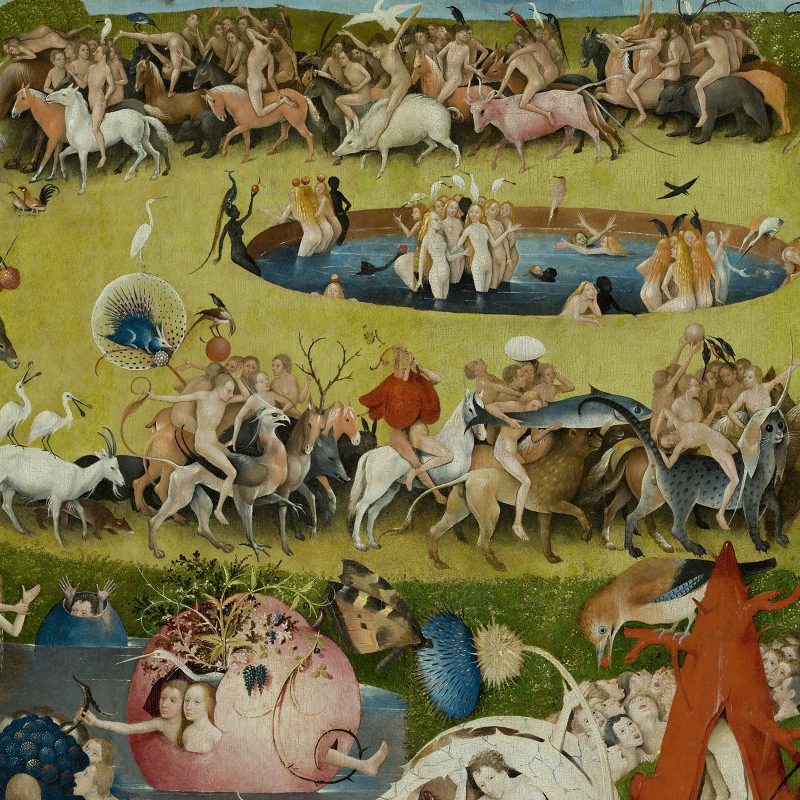
The dour mood “Lady Death” left us with was dispelled by the next vignette in the far back corner of the garden, an unlikely scene of courtship between a young woman and a giant blueberry. An actor dressed in black with a blueberry-like headdress that covered her whole head attempted to woo another young woman in a white dress. The poor blueberry had no luck, until the white-clad woman discovered how delicious the blueberry tasted. Appalled by its would-be beloved’s behavior, the blueberry committed suicide by sprinkling itself with pink powder from a can labeled “herbicide.” After a moment’s reflection, the woman in white ate the blueberry with relish. A humorous take on seduction, this vignette recalled the scene of frustrated courtship in the middle ground of the painting, in which a small group of naked women watch unimpressed as a cavalcade of naked men riding on beasts circles them.
Owl eyes
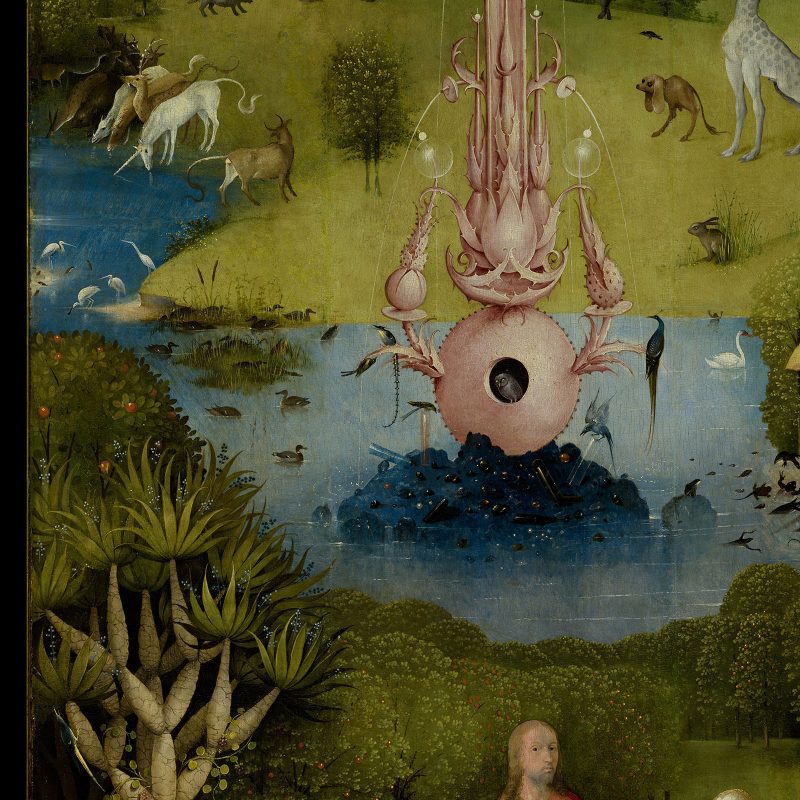
In the center of the garden, a pair of vignettes actively implicated us as audience members in the sins of the garden–a bowl of grapes labeled “feed me” rested next to a woman dressed in a white t-shirt and trousers, who came to life only after being fed by a member of the audience. After an elegant series of movements, including running a crystal ball between her finger like David Bowie’s character in Labyrinth, the actor turned to feed us each a grape.
Between the warm sun, tasty cocktails, and sweet fruit, the whole experience was a sensory delight–but, as in Bosch’s painting and his moral universe, God was watching. Nearby, a woman dressed in pale gray leggings and a white shirt with heavily painted eyes stared out at us like the owl in the center of the opening panel of the triptych, observing our behavior without comment.
Mike Durkin and the performers of The Renegade Company offered an amusing and thought-provoking interpretation of Bosch’s medieval masterpiece. The deliberately loose and open structure of the performances allowed us as audience members to pick and choose our sins, and gave us space to reflect on their meaning. A small, friendly group of people, including a couple of the gardeners and the cats who live in the garden, came together at the conclusion of the performances to nibble on cheese and cupcakes, and discuss The Renegade Company’s future projects. I look forward to their next production, “Animal Farm to Table,” inspired by George Orwell’s novel, which will take place as part of the FringeArts Festival, September 8–18. There will be a work-in-progress presentation of the show at The Painted Bride Art Center on June 10 & 11.
The Renegade Company and Spirit Forward’s “In the Community Garden of Earthly Delights: A Pop-Up Cocktail Performance,” was performed on May 8 & 9 at the Southwark/Queen Village Community Garden, 311 Christian St.


